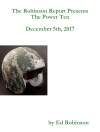This well-researched book offers a look at the life of the great French general, Alexis-Francois L’Hotte and includes Hilda Nelson’s complete translation of his much-quoted Questions Equestres, here entitled Equestrian Questions.
Alexis-François L’Hotte (1825-1904) was sent to the Ecole de Cavalerie at Saumur to pursue his equestrian talent. He became the pupil of both François Baucher and comte d’Aure. He returned to Saint-Cyr as commandant of the reopened cavalry section. In 1864 he became écuyer en chef of the Ecole de Cavalerie. In 1875 he returned to Saumur as commandant of the Ecole de Cavalerie there. He was considered by all to be the most outstanding écuyer of the period. It was on his personal horses that L’Hotte practiced the teachings of Baucher. But as écuyer en chef and commandant at Saumur, he was obliged to follow the teachings and rules of a military establishment. In this respect he was more in the d’ Auriste idiom, practicing primarily exterior and military equitation. It was his quest to produce answers to the equestrian challenges that he faced that prompted his writing of Questions équestres where he provides complete, precise, and definitive answers.
Sobre o autor
Alexis-Francois L’Hotte was a French general and one of the most compelling horsemen of his time (the 1800s). He attended Saint-Cyr as a young cadet. Since at the time Saint-Cyr had no cavalry school, L’Hotte was sent to the Ecole de Cavalerie at Saumur to pursue his equestrian talent. It was around this period that he became the pupil of both Francois Baucher and Comte d’Aure. He returned to Saint-Cyr as commandant of the re-opened cavalry section. In 1864 he became ecuyer en chef of the Ecole de Cavalerie. It was on his personal horses that L’Hotte practiced the teachings of Baucher. But as ecuyer en chef and commandant at Saumur, he was obliged to follow the teachings and rules of a military establishment. In this respect he was more in the d’Auriste idiom, practicing primarily outdoor and military equitation. For not supporting more openly the teachings of Baucher when he was ecuyer en chef and commandant at Saumur he was, and still is, criticized. However, it is his quest to produce answers to the equestrian problems that he faced that prompted his writing of ‘Questions equestres.’ He provides complete, precise, and definitive answers.












